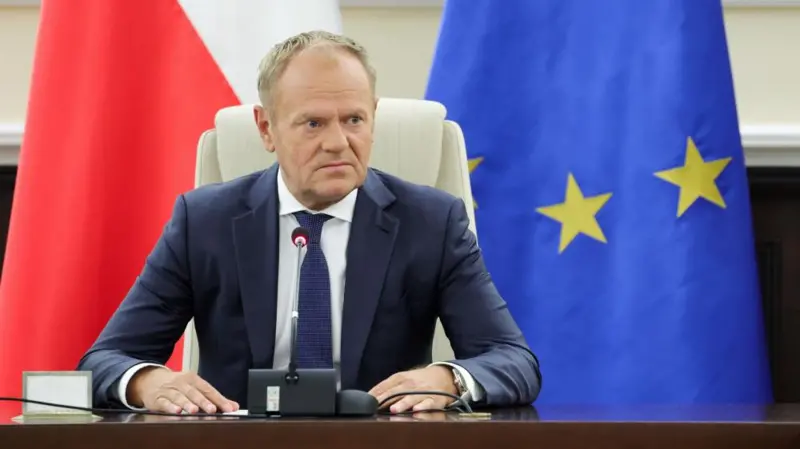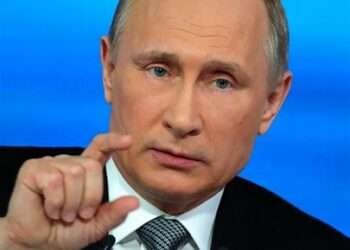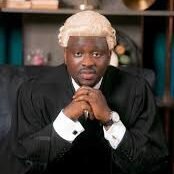Prime Minister Donald Tusk has announced that Poland will invoke the Article 4 of NATO, requesting a formal consultation within the alliance, after Russian drones entered its airspace.
Speaking the parliament, the Polish Prime Minister said that the move was a joint decision with the President, Karol Nawrocki.
Article 4 triggers consultations among NATO members when one feels its security, territory or political independence is threatened. It allows for high-level talks on how to counter threats but does not commit the alliance to military action. The article reads,“The Parties will consult together whenever, in the opinion of any of them, the territorial integrity, political independence or security of any of the Parties is threatened.”
Tusk stated that Article 4 is just the “beginning of deeper cooperation, and words are not enough,” adding, “We will expect significantly greater support during the consultations.”
“This is not our war, this is not just a war for Ukrainians, this is a war, a confrontation that Russia has declared on the entire free world.”
Donald Tusk
As per NATO’s records, Article 4 has been invoked only seven times since NATO was created in 1949 and last in 2022, in the immediate aftermath of the Russian full scale invasion of Ukraine.
Also, Tusk warned that the airspace violations are only a part of the broader security picture, with Russia and Belarus set to hold “aggressive” military exercise later this week.
Russia and Belarus’s large-scale military exercises, known as the “Zapad” drills, have raised security concerns in neighbouring NATO member states: Poland, Lithuania and Latvia. The “Zapad-2025” (West-2025) drills will be held in western Russia and Belarus from Friday.
“I have no reason to claim we’re on the brink of war, but a line has been crossed, and it’s incomparably more dangerous than before.
“This situation brings us the closest we have been to open conflict since World War Two.”
Donald Tusk
Tusk noted that the first signals from NATO members show the “understanding of how serious the situation is and the importance of continued support for Ukraine in this context.”
He stressed Poland’s support for Ukraine in its war with Russia, saying that it is also fundamental to Poland’s security.
European Leaders Express Solidarity With Poland
Meanwhile, a number of European leaders expressed their solidarity with Poland after overnight violation of Poland’s airspace by Russian drones.
French President, Emmanuel Macron said that the attack was “simply unacceptable,” and condemned it “in the strongest possible terms.”
“I call on Russia to put an end to this reckless escalation. I reiterate to the Polish people and their government our full solidarity. I will soon speak with Nato Secretary General Mark Rutte. We will not compromise on the security of the Allies.”
Emmanuel Macron
Dutch Prime Minister, Dick Schoof also stated that it was “unacceptable,” and “a further proof that Russia’s war of aggression poses a threat to the security of Europe.”
“I’m glad that Dutch F-35 fighter aircraft was able to provide support. The Netherlands stands shoulder to shoulder with its Nato ally, Poland.”
Dick Schoof
Ireland’s Micheál Martin disclosed that he “strongly condemned the violation of Poland’s territorial integrity,” calling it a “reckless and unprecedented act that is a stark reminder of the threat posed by Russia to Europe’s security.”
Finnish Prime Minister, Petteri Orpo noted that Poland had to resort to “exceptional measures” to protect its airspace from Russian drones. “Poland has Finland’s full support,” he said.
The European Council’s President, António Costa said the airspace violation was “a stark reminder that the security of one is the security of all.”
“We stand in full solidarity with Poland following Russia’s unacceptable violation of its airspace. Russia’s continued aggression against Ukraine and reckless airspace incursions into EU Member States pose a direct threat to the safety of all Europeans and to critical infrastructure across our continent. Poland is right to take necessary steps to defend its sovereignty.”
António Costa
He added that Europe is increasing investment in its defence, “because peace and security in Europe cannot be taken for granted.”
READ ALSO: Beyond Colonial Dig and Ship: Ghana Charts New Path for Mining Sector Transformation






















